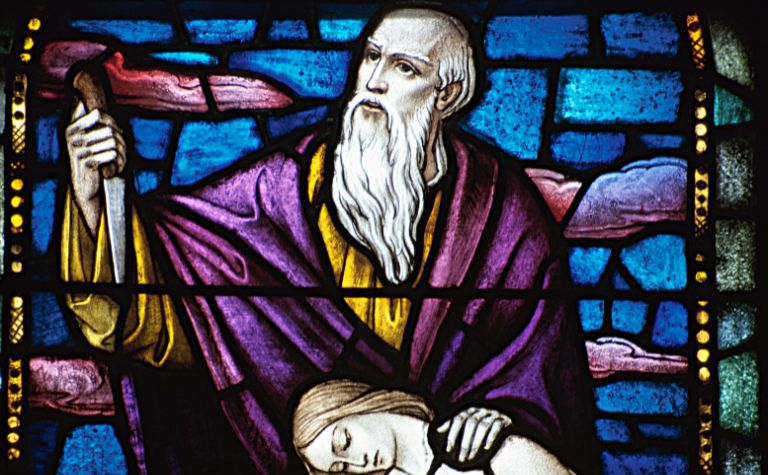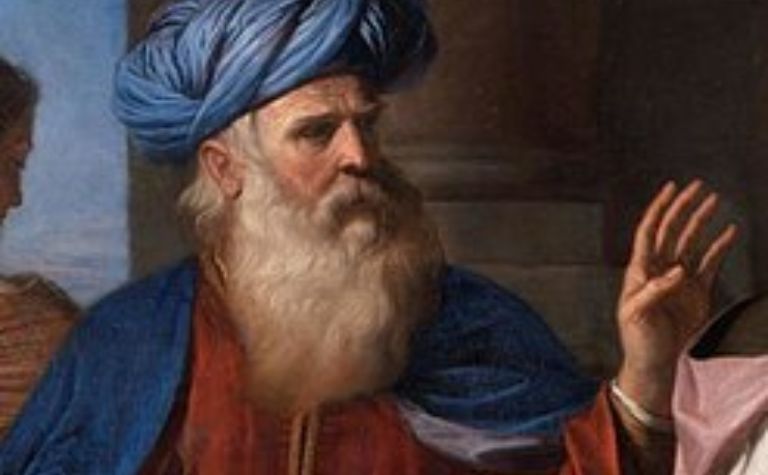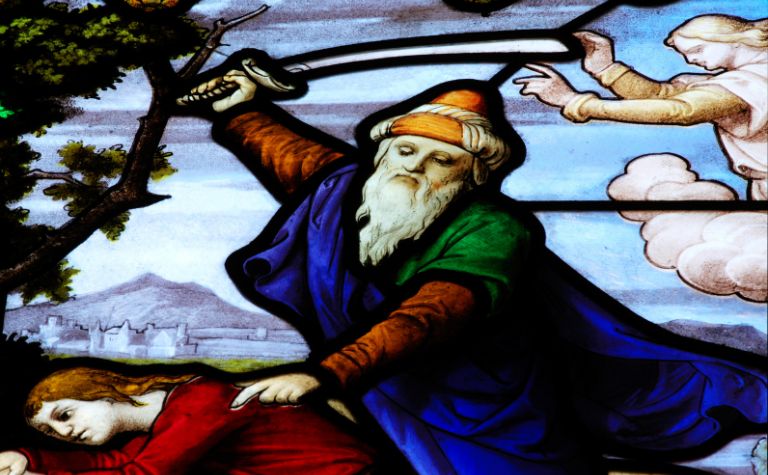According to the book of Genesis, Abraham was the first Hebrew patriarch. In the Old Testament, he is known as the father of the Jewish people. In the New Testament, writers, especially the Apostle Paul, highlight Abraham’s faith in God. One event in Abraham’s life people want to know more about is when his wife Sarah gave birth to Isaac.
Abraham was 100 years old when Isaac was born. His wife Sarah was 99. Abraham laughed when God told him Sarah would give birth to Isaac because of their ages. Nevertheless, Issac was the son God promised him who would inherit the promise of land, nation, and blessing that Abraham received.
What did God promise Abraham about descendants? Besides their ages, what significant obstacle existed to Isaac’s birth? How is Isaac’s birth like Jesus Christ’s? Keep reading to learn the answers to these questions and others.
Also, understanding Abraham’s lifespan is important to know his story. For more insight, learn how old Abraham was at his death and what Genesis says about it.

Abraham and Sarah Are Old When Isaac Is Born
When God called Abraham to the Promised Land, he said the patriarch’s descendants would become a nation living in it (Gen. 12:1-3, more below). In other parts of Abraham’s story, God explains how he would fulfill his promise of giving him offspring.
There were obstacles to God’s promise to Abraham beside his and Sarah’s old age. For instance, his wife was barren (Gen. 16:1-2), unable to have children. Sarah’s inability to have children was a lifelong struggle for the couple, leading to Abraham impregnating Sarah’s servant, Hagar (Gen. 16:1-16.
Abraham believed God would be faithful to his promise and praised him in response (Gen. 17:3, more below). Yet, given his immediate reaction, how God chose to fulfill it surprised him. Abraham and Sarah would have a son at an unconventional time that would reverse the norms of basic biology.
Abraham was 75 years old when God called him to leave Haran to live in the Promised Land (Gen. 12:4). Twenty-four years later, God elaborated on how Abraham would get descendants (Gen. 17:15-21).
Also, many readers of Genesis know about Isaac, yet Abraham had other children, too. See how many sons Abraham had to learn more about his family and legacy.
Abraham would be the forefather of generations
God told Abraham he would make a covenant with him and “multiply you greatly” (Gen. 17:2). This term refers to Abraham’s descendants. God added that he would “make you the father of a multitude of nations” (v. 4) and “you will be the father of many nations” (v. 5), and “I will make you extremely fruitful. Your descendants will become many nations, and kings will be among them!” (v. 6).
Genesis scholar John Hartley explains that these promises “echo God’s command to Adam (1:28), which God reaffirmed to Noah (8:17; 9:1, 7). The connection between these blessings indicates that God empowered Abraham to fulfill the divine purpose begun in creating Adam and delivering Noah.” [1]
Yet, Abraham didn’t foresee precisely how he would participate in these promises. Perhaps God would fulfill them through a younger member of his family like his nephew Lot.
God would enable Sarah to give birth in old age
How God would fulfill his promise to give Abraham descendants, revealed that the nation would be founded upon a miracle. He said, “I will bless [Sarah], and moreover, I will give you a son by her. I will bless her, and she shall become nations; kings of peoples shall come from her” (ESV).
When God said this, Abraham was 100, and Sarah was 99. Their ages were the basis for his reaction: “Then Abraham fell on his face and laughed and said to himself, ‘Shall a child be born to a man who is a hundred years old? Shall Sarah, who is ninety years old, bear a child?'” (Gen. 17:17)
Earlier in the passage, Abraham fell “fell on his face” (v. 3) as an act of worship when God said he would have descendants. However, in this scene, when God tells him that Sarah will give birth to Isaac, Abraham “fell on his face” less respectfully.
Genesis scholar Victor Hamilton writes, “Abraham is no expert of gynecology, but he knows that he and his wife are well beyond the parenting years. Much like Moses later on, Abraham believes that his circumstances limit the promises of God. God is ignoring some fundamental problems that in effect makes his promises stillborn. So Abraham thinks.” [2]
In fulfillment of God’s promise, Sarah gave birth to Issac the following year. Genesis 21:5 reads, “Abraham was a hundred years old when his son Isaac was born to him” (ESV).
Also, knowing more about when Abraham lived will help readers learn his story. Discover his birth and death date and much more.

God Promises Abraham A Nation
Abraham is the main character in Genesis 11:10-25:11. One theme throughout his story is the promise God made to him, often called the Abrahamic Covenant. God demonstrates his faithfulness to the promises he made throughout the Patriarch’s life and to his descendants.
When Abraham was in Haran, in the northern region of Mesopotamia, God called him south, between the Mediterranean Sea to the west and the Jordan River to the east. He said, “Go from your country and your kindred and your father’s house to the land that I will show you” (Gen. 12:1, ESV).
Because of how Abraham acquired the land, the Bible sometimes refers to it as the “promised land” or “the land of promise.” For example, Hebrews 11:9 reads, “By faith [Abraham] went to live in the land of promise, as in a foreign land, living in tents with Isaac and Jacob, heirs with him of the same promise” (ESV). Other translations say “promised land” (e.g., NIV).
In addition to land, God promised him that his descendants would grow into a nation, and he would bless them. God said, “And I will make of you a great nation, and I will bless you and make your name great, so that you will be a blessing” (Gen. 12:2, ESV). Other verses reiterate this promise.
| Genesis 17:4 | Behold, my covenant is with you, and you shall be the father of a multitude of nations. |
| Genesis 18:18 | …seeing that Abraham shall surely become a great and mighty nation, and all the nations of the earth shall be blessed in him |
| Genesis 22:17 | I will surely bless you, and I will surely multiply your offspring as the stars of heaven and as the sand that is on the seashore. And your offspring shall possess the gate of his enemies… |
God also promised to use Abraham’s descendants to bless all people and protect their mission in the world by cursing their enemies. Genesis 12:3 reads, “I will bless those who bless you, and him who dishonors you I will curse, and in you all the families of the earth shall be blessed” (ESV).
Also, in the Bible, names often have special meanings. Learn more about the meaning of Abraham’s name to get more insight into his life.

Isaac’s Birth Foreshadows Jesus’ Birth
In the miracle of Isaac’s birth, God reversed biological norms. He demonstrated his power over barrenness and old age to accomplish his will, extending his promises to future generations.
God also reversed biological norms, but more profoundly, in the birth of Jesus. While Abraham and Sarah conceived naturally, Mary didn’t. The Old and New Testaments report that she was a virgin when she became pregnant (Matt. 1:18; Luke 1:27, 34; cf. Isa. 7:14).
Yet just like in the life of Abraham and Sarah, God performed a miracle that intervened in the formal functions of biology. Unlike Abraham and Sarah, Joseph and Mary didn’t laugh.
Mary’s immediate response was, “Behold, I am the servant of the Lord; let it be to me according to your word” (Luke 1:38). She also praised God with great joy and thankfulness” (Luke 1:46-55).
References:
[1] Genesis by John Hartley. NIBC. p. 171.
[2] The Book of Genesis: Chapters 1-17 by Victor Hamilton. NICOT. p. 477.
Related Questions
The story of Noah, the flood, and the ark is one of the most iconic narratives in the Bible. Not only does the magnitude of the floodwaters leave readers awe-struck, but so does the faith that Noah...
Adam and Eve are the first humans God created. Readers know the pair as the first man and woman, and as the first people to rebel against God, which they did in the Garden of Eden. Did Adam and Eve...
